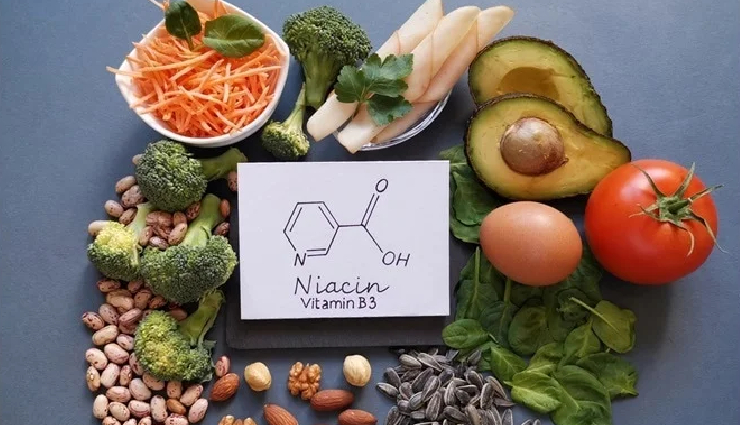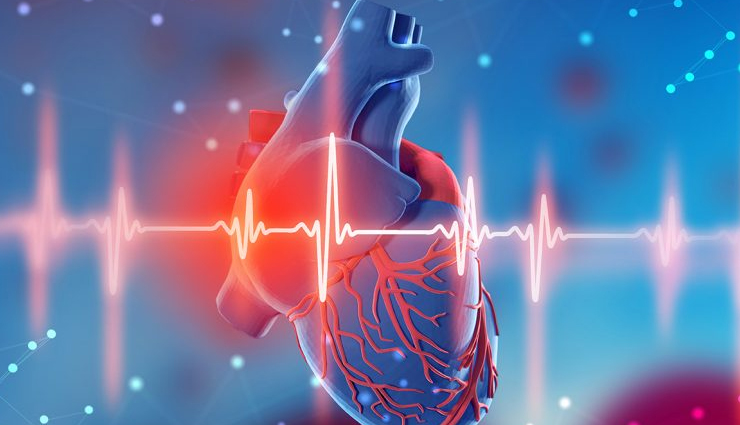- Home›
- Healthy Living›
- 8 Least Known Health Benefits Of Niacin
8 Least Known Health Benefits Of Niacin
By: Priyanka Maheshwari Tue, 05 Mar 2024 10:37:08

Niacin, also known as vitamin B3 or nicotinic acid, is a crucial water-soluble nutrient essential for the proper functioning of the body. It plays a vital role in various metabolic processes, including energy production, DNA repair, and cellular signaling. Niacin is found naturally in a variety of foods, including meat, fish, poultry, nuts, and grains, and it can also be synthesized by the body from the amino acid tryptophan.
One of the primary functions of niacin is its involvement in the conversion of carbohydrates, fats, and proteins into usable energy. It accomplishes this by serving as a precursor to coenzymes nicotinamide adenine dinucleotide (NAD) and nicotinamide adenine dinucleotide phosphate (NADP), which are essential for numerous enzymatic reactions involved in energy metabolism.
In addition to its role in energy production, niacin is also important for maintaining the health of the skin, nerves, and digestive system. It aids in the synthesis of certain hormones and supports proper circulation, which is crucial for cardiovascular health.
Niacin deficiency can lead to a condition known as pellagra, characterized by symptoms such as dermatitis, diarrhea, dementia, and in severe cases, death. Pellagra was once prevalent in populations whose diets were heavily reliant on maize (corn) and lacking in niacin-rich foods.
Supplementation with niacin is sometimes recommended to treat conditions such as high cholesterol and triglyceride levels, as it has been shown to help lower LDL cholesterol and raise HDL cholesterol levels. However, high doses of niacin can cause side effects such as flushing, itching, and liver damage, so it's important to consult with a healthcare professional before starting niacin supplementation.

# Supports Cardiovascular Health
Niacin has been shown to improve lipid profiles by increasing levels of HDL (good) cholesterol and decreasing levels of LDL (bad) cholesterol and triglycerides. This can help reduce the risk of cardiovascular diseases such as heart attacks and strokes.

# Promotes Healthy Skin
Niacin is involved in the maintenance of healthy skin cells and can help improve conditions like acne, eczema, and dry skin. It supports proper circulation to the skin and aids in the repair of damaged skin cells.

# Boosts Brain Function
Adequate levels of niacin are essential for proper brain function. Niacin supports cognitive health by participating in the production of neurotransmitters, which are chemicals that facilitate communication between nerve cells in the brain.

# Supports Energy Metabolism
Niacin plays a crucial role in the metabolism of carbohydrates, fats, and proteins, converting them into usable energy for the body. This helps maintain energy levels and supports overall metabolic function.

# May Improve Joint Mobility
Some research suggests that niacin supplementation may help improve joint mobility and reduce inflammation in conditions like osteoarthritis. Niacin's anti-inflammatory properties may contribute to these benefits.

# May Help Lower Blood Pressure
Niacin supplementation has been associated with modest reductions in blood pressure, particularly in individuals with hypertension. By supporting proper circulation and cardiovascular health, niacin may help regulate blood pressure levels.

# Supports Digestive Health
Niacin aids in the proper functioning of the digestive system by supporting the production of enzymes needed for the breakdown and utilization of nutrients from food. It also plays a role in maintaining the health of the gastrointestinal tract.

# May Improve Mood and Mental Health
Adequate levels of niacin are essential for the production of serotonin, a neurotransmitter that regulates mood, sleep, and appetite. Some studies suggest that niacin supplementation may help alleviate symptoms of depression and anxiety.





